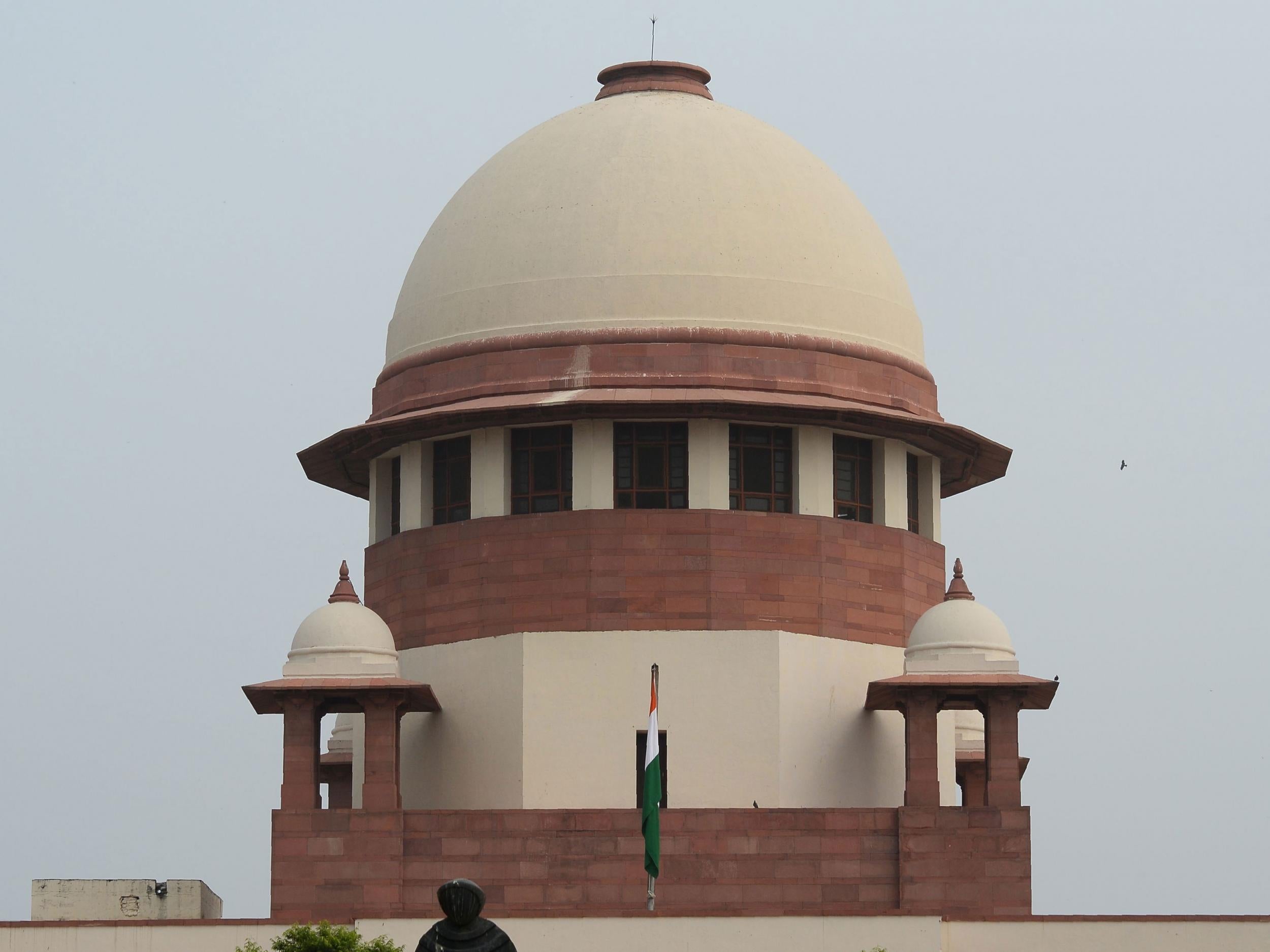India’s Supreme Court accused of ‘stifling criticism’ with contempt case against leading activist-lawyer
Prashant Bhushan’s posts criticising the court and the motorbike-riding Chief Justice of India have been deleted by Twitter

More than 130 senior advocates, former judges, academics and activists have signed an open letter calling on the Supreme Court of India to drop contempt charges against a prominent human rights lawyer who tweeted criticism of the apex court.
Prashant Bhushan could face up to six months in prison after the Supreme Court initiated proceedings against him for “scandalising the court”, a charge which dates back to British colonial-era laws but has since been scrapped in the UK itself and many Commonwealth jurisdictions.
The court took issue with two tweets by Mr Bhushan, one of the country’s most high profile public interest litigators and rights activists. One criticised the Chief Justice of India Sharad Arvind Bobde for posing without a mask during lockdown on a Harley Davidson motorbike “belonging to a BJP (the ruling party) leader”.
The other stated that “when historians in future look back at the last six years to see how democracy has been destroyed in India even without a formal emergency, they will particularly mark the role of the Supreme Court in this destruction”.
The tweets have since been deleted by Twitter, and the social media company has also been issued a notice to represent itself at the hearings on 4 and 5 August.
In the open letter, signatories including a former Supreme Court judge described Mr Bhushan as “a relentless crusader for the rights of the weakest sections of our society”.
“In the past few years, serious questions have been raised about the reluctance of the Supreme Court to play its constitutionally mandated role as a check on governmental excesses and violations of fundamental rights of people by the state,” the letter said, citing specific incidents including the court’s failure to intervene on the part of migrant workers stranded by India’s national coronavirus lockdown.
“The initiation of contempt proceedings against Mr Bhushan, who had articulated some of these concerns in his tweets, appears to be an attempt at stifling such criticism, not just by Prashant Bhushan but by all stakeholders in the Indian democratic and constitutional setup,” the letter read.
An editorial and two op-eds on Monday in The Hindu, a left-leaning national newspaper, questioned whether it was “the right time for these issues to be taken up” by the Supreme Court, which remains closed for business besides a select number of cases heard virtually, given “there is no shortage of urgent and pressing issues which desperately cry out for the court’s attention”.
And they questioned the fact that the case will be heard by a bench of three justices led by Arun Mishra, a judge who has previously clashed with Mr Bhushan and who in February sparked controversy by praising Narendra Modi as an “internationally acclaimed visionary” and a “versatile genius”.
“It is regrettable that judges believe that silencing criticism will harbour respect for the judiciary,” wrote Justice A P Shah, a former chief justice of the Delhi and Madras High Courts and chair of the Law Commission of India.
Mr Bhushan, who is understood to be grateful for the outpouring of support from the legal community, has through his activism won more than his share of detractors among those who support Mr Modi’s BJP.
Before it began proceedings against him last week, the Supreme Court had received several petitions to do so led by a lawyer based in the conservative-leaning state of Madhya Pradesh, Mahek Maheshwari, who called Mr Bhushan’s tweets a “cheap publicity stunt… to spread hatred in the form of [an] anti-India campaign”.
Despite the ongoing proceedings, Mr Bhushan has continued to tweet to his 1.6 million followers, writing on Monday morning that the court was relying on an “anachronistic, unfair and counterproductive law”.
“Respect for [the] judiciary cannot be created by muzzling criticism,” he wrote. “That will only undermine that respect.”
Join our commenting forum
Join thought-provoking conversations, follow other Independent readers and see their replies
Comments